What is Vintage Fashion?
Vintage fashion is more than just old clothing—it’s a portal to the past, a statement of individuality, and a commitment to quality craftsmanship.
Originating from the French ‘vendange’, a term used to describe wine vintages, ‘vintage’ in fashion refers to genuine garments, footwear, and accessories between 20 and 100 years old.
As Anna Wintour astutely noted in a 2017 Vogue article, “The ‘vintage’ tag can be appended to pieces of at least 20 years old, but only if these articles showcase characteristics associated with that era.”
This means that an authentic vintage piece must have the right age and embody its time’s aesthetic and cultural zeitgeist.
Vintage vs Retro vs Antique
| Aspect | Vintage | Retro | Antique |
|---|---|---|---|
| Age | 20-100 years | Contemporary (less than 20 years) | Over 100 years |
| Authenticity | Original garments from the era | Modern reproductions | Original historical garments |
| Style | Genuine representation of past fashion | Inspired by past styles | True historical fashion |
| Value | Collectible, increasing with age | Variable, based on current trends | High, based on historical significance |
| Examples | 1960s Mary Quant miniskirt, 1980s Versace power suit | Modern poodle skirts, reproduced 1970s-style bell-bottoms | Edwardian gowns, 1920s flapper dresses |
While a 1985 Armani suit that looks indistinguishable from a modern design may technically be vintage, it lacks the distinctive characteristics that make vintage fashion genuinely captivating.
The allure of vintage lies in its ability to transport us to a different era, to tell a story through fabric and form.
Vintage Essentials for Modern Men
A stylish gentleman’s well-curated wardrobe should blend vintage classics with unique period pieces.
| Category | Essential Garments |
|---|---|
| Outerwear | 1950s leather bomber jacket, 1960s mac coat, 1970s suede jacket |
| Suits | 1930s double-breasted suit, 1960s slim-fit suit, 1970s wide-lapel suit |
| Shirts | 1940s Oxford button-down, 1950s Hawaiian shirt, 1960s penny collar shirt |
| Trousers | 1950s high-waisted trousers, 1960s slim-fit chinos, 1970s flared jeans |
| Accessories | 1920s pocket watch, 1950s Ray-Ban Wayfarers, 1960s skinny tie |
Must-Have Vintage Fashion Brands
When building your vintage wardrobe, keep an eye out for these esteemed brands:
| Category | Notable Brands |
|---|---|
| Designer | Dior, Saint Laurent, Gucci |
| Clothing | Gabicci, Lyle & Scott, John Smedley, Belstaff |
| Footwear | Bass Weejuns, Clarks Originals, Dr Martens, Gola |
| Denim | Levi’s, Lee Jeans, Wrangler |
| Accessories | Failsworth Hats, Ray-Ban, Persol, Tootal Scarves |
| Athleisure | Fred Perry, Sergio Tacchini, Diadora, FILA |
These clothing brands have endured by consistently producing quality garments embodying their respective eras’ essence.
Purchasing vintage fashion from these labels ensures that you acquire clothing and pieces of wearable history.
Styling Vintage Clothes by Season
Mastering vintage clothes means choosing and styling these timeless garments to match the modern context and your fashion style across all seasons.
Let’s explore four distinct vintage-inspired looks for each season, tailored for the contemporary gentleman who appreciates the allure of bygone eras.
Vintage Outfit for Spring
As the world awakens from winter’s slumber, let’s channel the spirit of a 1950s gentleman with a dash of 1920s flair.
Start your outfit with authentic 1950s high-waisted, wide-leg, light tobacco brown trousers made from a breathable wool-linen blend.
 |
 |
These vintage trousers showcase the higher rise and fuller cut typical of the era. You can find them at specialised vintage shops like Wayward Vintage in London or online at Rusty Zipper.
Tuck in a vintage 1950s white Hawkins and Shepherd penny-collar shirt with a pin collar for a touch of bygone elegance. Find them at Hawkins and Shepherd online store or dedicated 1950s vintage stores like Savvy Row.
Layer over this a genuine 1950s cardigan or V-neck sweater in soft sage green, ensuring the V-neck frames the shirt collar perfectly. Find them at vintage knitwear specialists like Rokit.
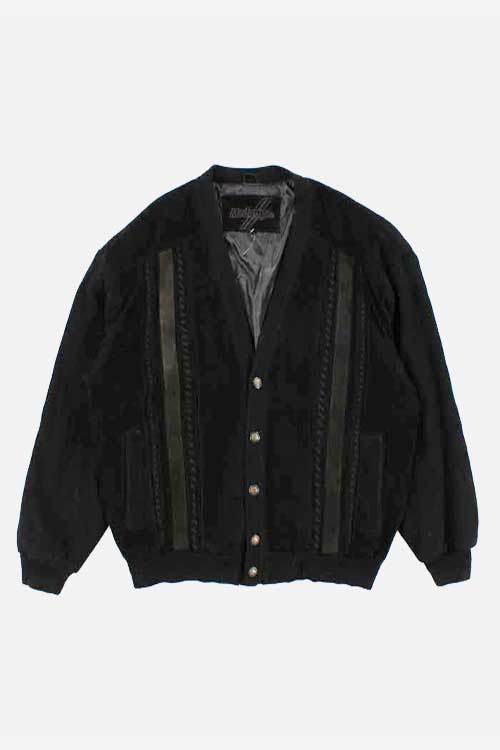 |
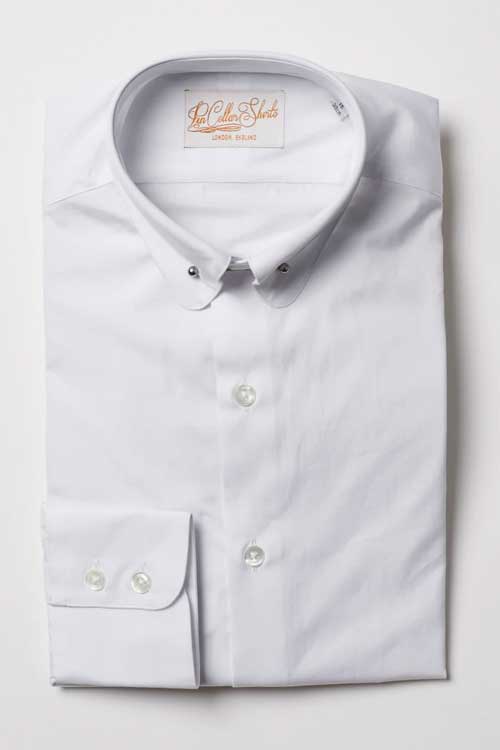 |
Wear authentic 1920s two-tone spectator shoes in cream and brown, a nod to the Jazz Age.
Accessorise with a genuine 1920s straw boater hat with a grosgrain ribbon matching the trousers, available at vintage hat specialists like Lock & Co Hatters.
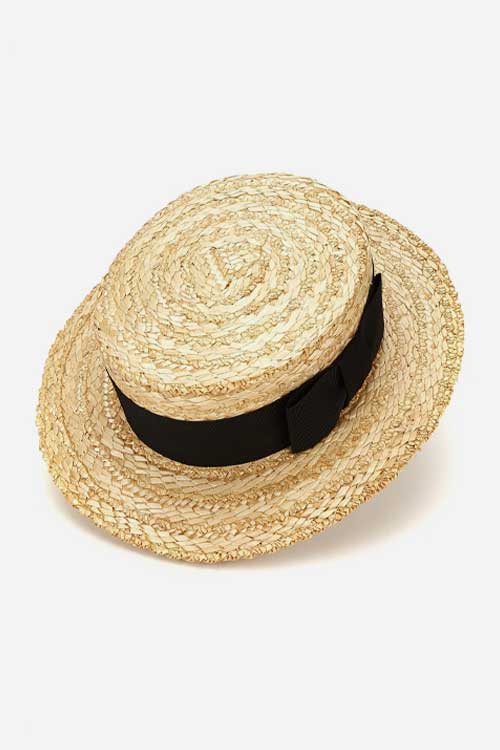 |
 |
Finish the look with a vintage 1950s silk pocket square in a paisley print, allowing the teals and gold to complement the cardigan. Look for these at vintage accessories specialists like Revival Vintage.
Vintage Outfit for Summer
For those balmy summer days, let’s channel the sun-drenched glamour of the 1960s French Riviera.
Start with authentic 1960s high-rise, slim-fit linen vintage trousers in pale azure blue that showcase the higher rise and slimmer cut typical of the era.
You can find them at specialised vintage shops like Rokit in London or Etsy’s vintage section.
Pair with a short-sleeve knit polo shirt in textured cream cotton. Casually unbuttone the three-button placket. Quality reproductions are available at Sunspel or John Smedley.
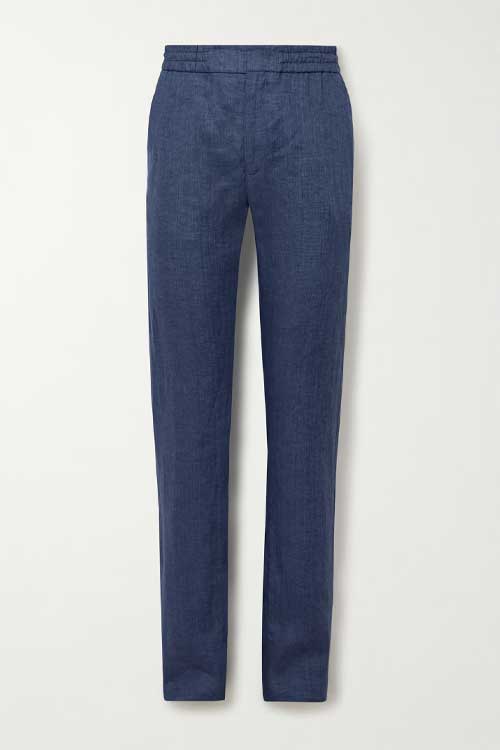 |
 |
Throw on a genuine 1960s terry cloth cabana jacket in bold navy and white stripes and a distinctive notch-lapel collar.
This jacket embodies the louche elegance of mid-century resort wear, and you can find it at markets like Portobello Road Market in London or 1stDibs.
Wear handcrafted leather sandals in rich tan – a modern interpretation of 1960s footwear. Look for these at artisanal shoemakers like Baudoin & Lange.
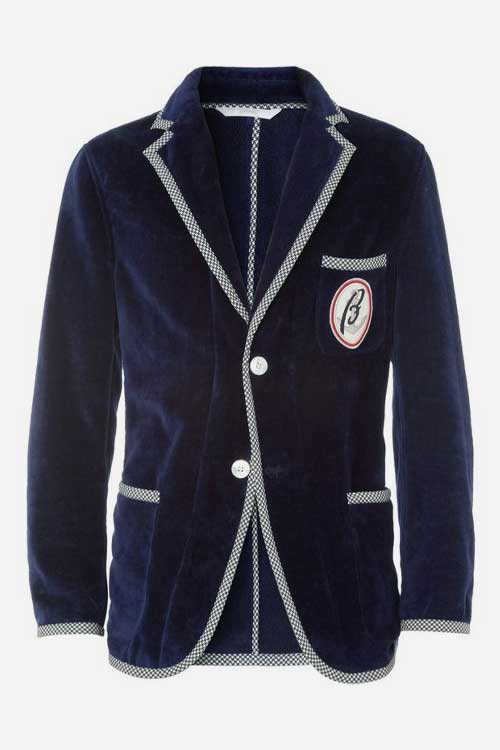 |
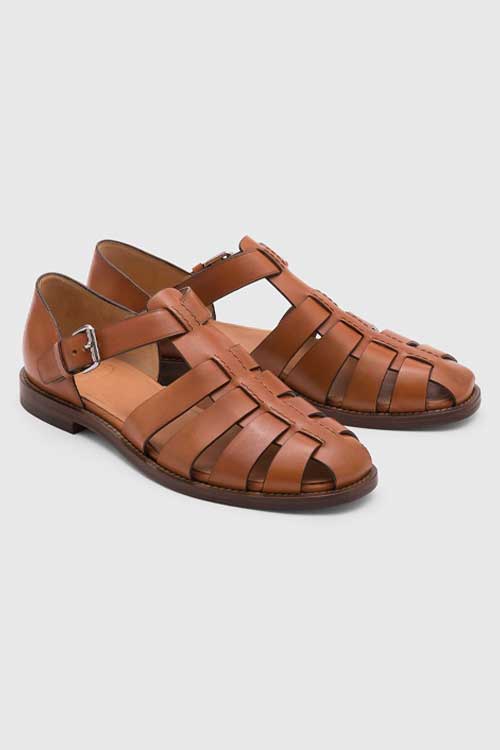 |
Shield your eyes with vintage 1960s Persol sunglasses, recognisable by arrow hinges and thicker frames than modern versions available at luxury eyewear specialists like Vintage Frames Company.
Complete the look with an authentic 1960s Omega Seamaster watch, a vintage timepiece with a steel bracelet and blue dial – a coveted collector’s item from the era.
Find it at reputable vintage watch dealers like Watches of Knightsbridge or Chrono24.
Vintage Outfit for Autumn
As leaves turn golden, let’s embrace the scholarly charm of the 1930s British countryside style.
The star is a genuine 1930s three-piece tweed suit in russet brown with subtle green and orange overcheck.
This vintage suit exemplifies the era with a high gorge, wide lapels, a nipped waist on the jacket, and a full-backed waistcoat for warmth.
Hunt for these treasures at specialist vintage menswear shops like Hornets in Kensington.
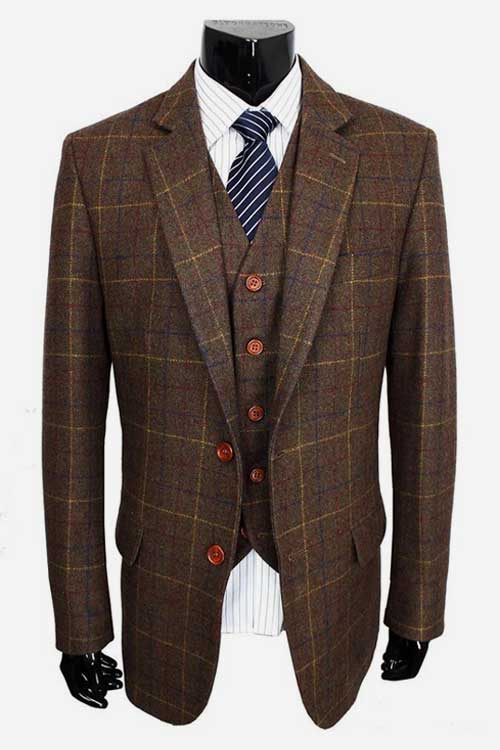 |
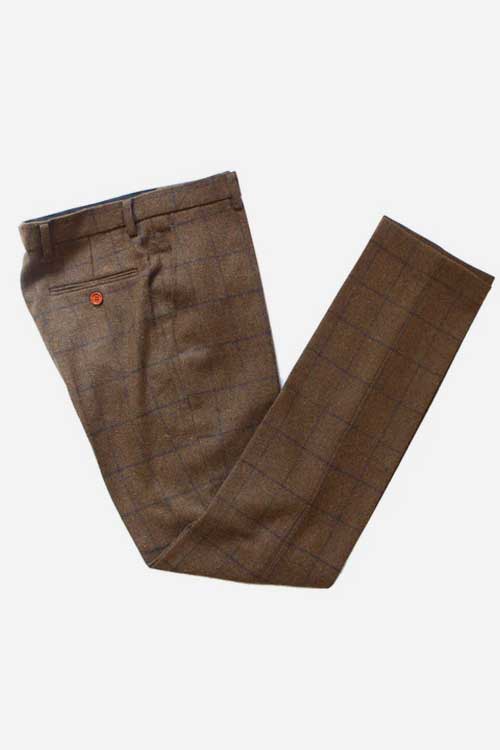 |
Underneath, wear a modern cream silk shirt with a reproduction detachable spearpoint collar, mimicking the 1930s style. Darcy Clothing specialises in such historical reproductions.
Add a vintage 1930s wool tie in deep forest green, secured with an authentic Art Deco tie pin from the same period.
These can often be found at antique jewellery fairs or online at The Tie Bar’s vintage section.
Wear modern burgundy brogues with perforated detailing from Crockett & Jones, echoing the uniqueness of 1930s vintage footwear.
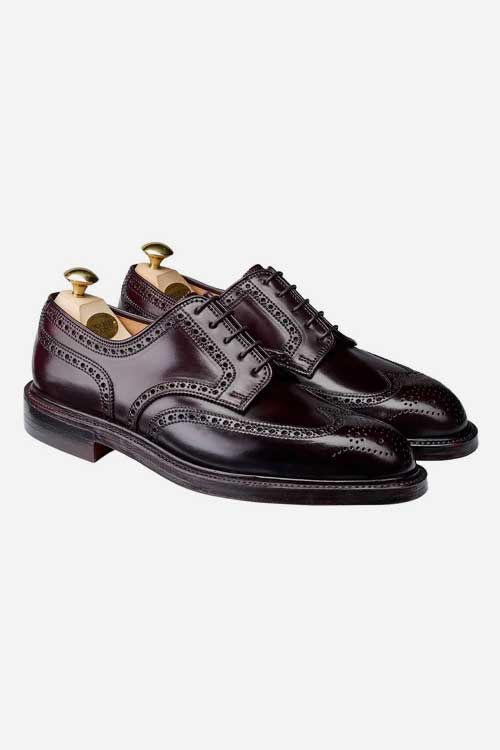 |
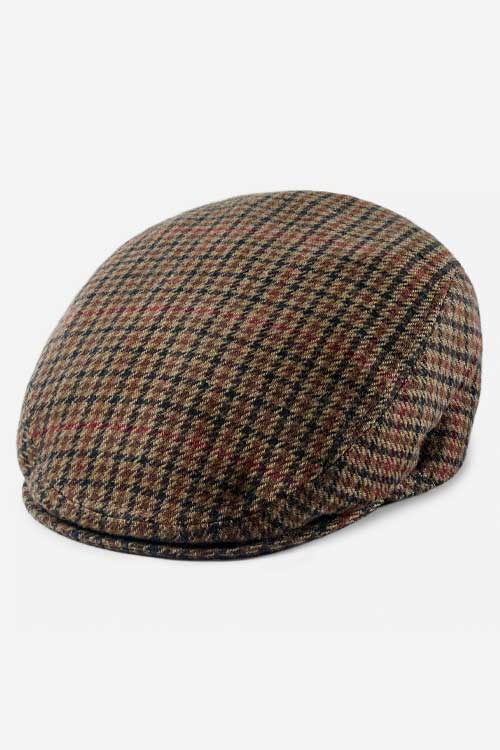 |
Top with a genuine 1930s flat cap in brown herringbone wool, showcasing this era’s fuller cut and cap structure.
Try vintage hat specialists like Laird London or online at Beyond Retro.
For a final touch, tuck an authentic 1930s pocket watch into your waistcoat, gold chain draped elegantly across – a quintessential accessory of the period.
Search at antique markets like Grays Antique Centre in London or online at Invaluable.
Vintage Outfit for Winter
For the depths of winter, we’re channelling the brooding elegance of 1940s film noir.
Start with a genuine 1940s black double-breasted overcoat in heavy melton wool from vintage retailers like Vestiaire Collective.
Its peaked lapels and belted waist create the dramatic silhouette of the era.
Beneath, don an authentic 1940s charcoal grey flannel suit with strong, padded shoulders and high-waisted, pleated trousers, hallmarks of 1940s tailoring from vintage suit dealers like Vintage Suit Hire Co. or A Suitable Wardrobe.
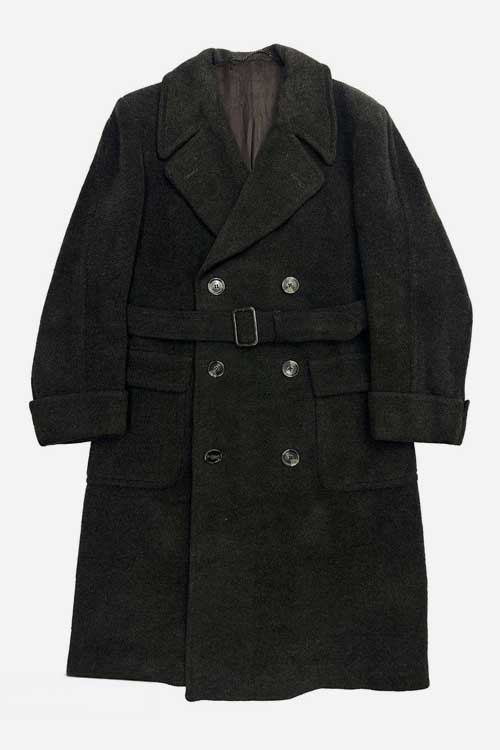 |
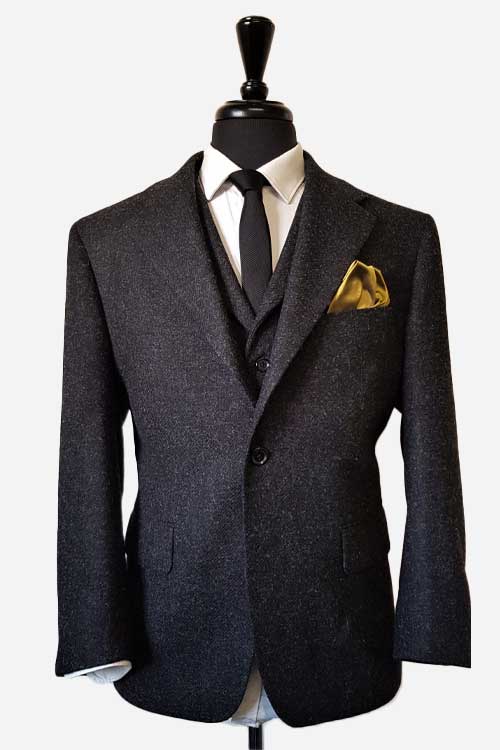 |
Layer with a modern white shirt with a tall, stiff collar adorned with a vintage 1940s silver tie bar from Turnbull & Asser and an authentic 1940s tie in midnight blue silk, knotted in a full Windsor from charity shops or online at Tie Deals.
Match with modern black Oxfords from Church’s, polished to a high shine reminiscent of the era.
Top with a genuine 1940s grey fedora, grosgrain ribbon matching the suit, showcasing the wider brim popular during those times from Bates Hats or Revival Vintage.
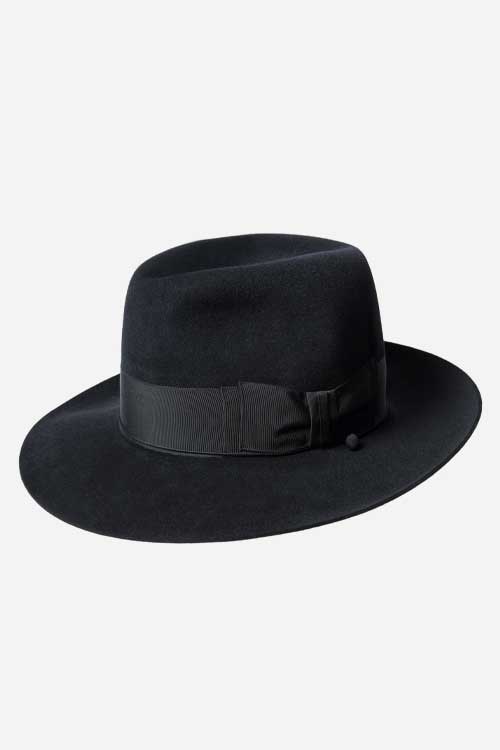 |
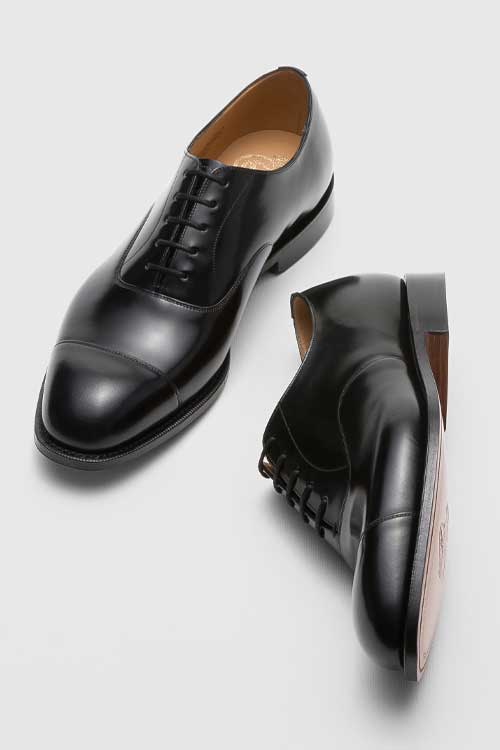 |
Add intrigue with an authentic 1940s silver cigarette case tucked into your breast pocket – a typical accessory from the Vintage Cartier.
Wrap a vintage 1940s burgundy silk scarf around your neck, letting it peek out beneath your coat collar from textile specialists like Vintage Textile or online at The Vintage Shower.
How to Style Vintage and Contemporary Clothes
Styling vintage clothes is an art that requires knowledge of how to blend period pieces with modern garments seamlessly.
This approach makes vintage more wearable and creates a unique, personalised look Here are some key tips:
| Tips | Example |
|---|---|
| Contrast Stylistic Eras | Pair a 1950s bomber jacket with modern slim-fit jeans and minimalist sneakers |
| Mix Formal and Casual Clothes | Wear a vintage 1960s suit jacket with a contemporary t-shirt and chinos |
| Complement with Accessories | Complement a vintage outfit with modern sunglasses or a current-season watch / or the other way around |
| Fit is Critical | Have vintage suits tailored to achieve a more contemporary silhouette |
You must create a cohesive look that doesn’t feel like a costume.
Whenever in doubt, know that our personal men’s stylists are here to help you integrate even the most complex vintage garments into your wardrobe.
Must-Have Vintage Accessories
Accessories offer an excellent entry point into vintage style, allowing you to add character to contemporary outfits without committing to a full-period dress.
When selecting vintage accessories, prioritise condition and authenticity. Genuine pieces in good condition look better and hold their value over time.
Watches: A vintage timepiece, like a 1960s Omega Seamaster or a 1950s Rolex Datejust, adds instant sophistication to any outfit.
Find these at specialist vintage watch dealers or reputable online marketplaces like Chrono24.
Eyewear: Classic styles like 1950s Ray-Ban Wayfarers or 1960s Persol frames never go out of style.
Look for authentic pieces at vintage eyewear specialists like Vintage Frames Company.
Ties: A 1950s skinny tie or a 1970s bold wide tie add character to any modern suit.
Hunt for these at vintage clothing stores or online platforms like Etsy.
Cufflinks: Art Deco cufflinks from the 1920s or mid-century modern designs from the 1960s add a touch of vintage elegance to formal wear.
Antique markets and jewellery fairs are excellent sources for these.
Pocket Squares: Vintage silk pocket squares with unique patterns can liven up a contemporary blazer.
Look for these at high-end vintage retailers or specialist online stores like The Tie Bar.
Vintage Fashion Do’s and Don’ts
| Do | Don’t |
|---|---|
| Research the era you’re interested in | Don’t wear head-to-toe vintage from a single era |
| Invest in high-quality vintage pieces | Don’t ignore the condition of vintage pieces |
| Mix vintage with contemporary items | Don’t be afraid to alter vintage garments for a better fit |
| Pay attention to fabric and construction quality | Don’t ignore the importance of proper care and storage |
| Consider the occasion when wearing vintage | Don’t wear vintage garments that make you uncomfortable |
Vintage Do’s
Research the historical period
Understanding a particular period’s historical context and style nuances will help you appreciate and wear vintage pieces more authentically.
If you have time, consult fashion history books, vintage magazines, and reputable online resources like The Vintage Fashion Guild.
Alternatively, you can always get The VOU’s styling experts to help – just email us.
Invest in high-quality vintage
Look for well-made items from renowned brands or skilled tailors of the era.
These pieces will not only last longer but often appreciate in value.
Shops like Vestiaire Collective or 1stDibs often stock high-end vintage pieces.
Mix vintage with modern clothes
This creates a unique, personalised style and makes vintage more wearable in modern contexts.
For example, try pairing a vintage 1960s sport coat with modern chinos and loafers.
Pay attention to fabric and construction quality
Vintage pieces were often made to last, with high-quality materials and craftsmanship.
Look for natural fibres and hand-finished details from specialist vintage dealers like A Current Affair in New York.
Consider the occasion
While a 1970s polyester suit might be perfect for a themed party, it may not be appropriate for a modern business meeting.
Choose your vintage garments wisely and always based on the occasion and setting.
Vintage Don’ts
Don’t wear head-to-toe vintage from a single era
Wearing all vintage from the same era will make you look costumey rather than stylish.
Instead, mix garments from different eras or, even better, blend vintage fashion with modern clothes for a balanced look.
Don’t ignore the condition
Check for tears, stains, missing buttons, or broken zippers. While some issues can be repaired, others may be deal-breakers.
Always inspect items thoroughly before purchasing, especially when buying online.
Don’t be afraid to alter vintage for a better fit
A good tailor can update the fit of vintage clothing without compromising its character.
Many vintage specialists, like Farfetch’s vintage section, offer alteration services.
Don’t ignore care and storage
Vintage pieces often require special care. Follow care labels, use padded hangers, and store items in a cool, dry place.
For delicate pieces, consider professional cleaning services that specialise in vintage garments.
Don’t wear vintage that makes you uncomfortable
Whether it’s a tight fit, scratchy fabric, or a style that doesn’t suit you, it will show if you’re uncomfortable.
Conclusion
As explored throughout this guide, vintage fashion offers a unique opportunity to stand out in a world of fast fashion and fleeting trends.
Whether you’re drawn to the dapper elegance of the 1920s, the rebellious spirit of the 1950s, or the bold expressions of the 1970s, vintage fashion offers endless possibilities for self-expression.
By understanding the differences between vintage, retro, and antique to curating season-specific outfits and skillfully mixing old with new, you can now confidently style vintage fashion.
As a quick vintage fashion recap, keep these final thoughts in mind:
Quality first: Invest in well-made pieces that have stood the test of time.
Dress to tell a story: Each vintage piece has a history—let your outfit tell a unique, distinctly yours story.
Experiment: Don’t be afraid to try different eras and styles to find what resonates with you.
Sustainable fashion: By choosing vintage, you contribute to a more sustainable fashion ecosystem.
By incorporating timeless vintage into your wardrobe, you’re not just wearing clothes—you’re wearing history.
Time to raid those vintage shops, explore online marketplaces, and perhaps even dive into your grandfather’s closet.
The world of vintage men’s fashion awaits, rich with character, quality, and style that truly stands the test of time.
Embrace it, make it your own, and step out with the confidence of a man who knows that true style is timeless.
With years of expertise in high-end fashion collabs and a PhD in Sustainable Fashion, Ru specialises in eco-luxe wardrobes for the modern gentleman seeking understated refinement.
After years of managing hundreds of fashion brands from London's office of a global retailer, Mandy has ventured into freelancing. Connected with several fashion retailers and media platforms in the US, Australia, and the UK, Mandy uses her expertise to consult for emerging fashion brands create top-notch content as an editorial strategist for several online publications.
With over twenty years of front-row fashion and styling events, collabs with haute-couture houses, and a PhD in Luxury Fashion, Laurenti is an expert in crafting personalised looks that depict old-money sophistication.


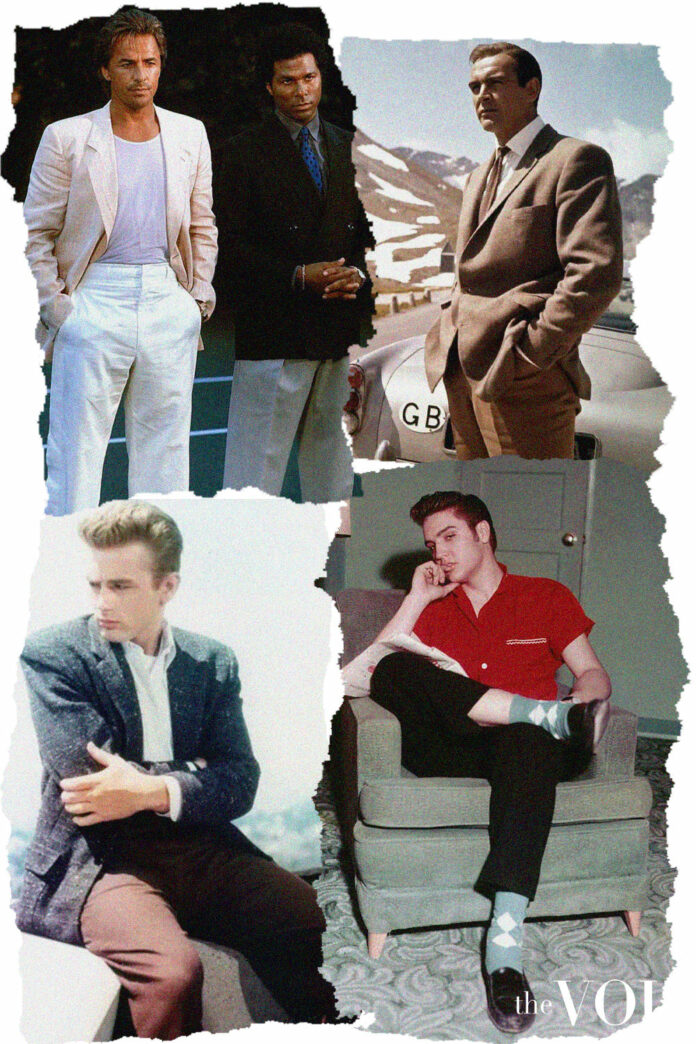
Lovely written and very informative content, really enjoyed reading and learning more about vintage clothing, fashion, and how to put together a vintage outfit. Can you do the same article for women, please?
Thank you! Now I’ve learnt the differences. Beautiful website <3
Great article clarifying the differences between vintage, retro, and antique.
Thank you for covering the subject, I’ve been doing a little research about vintage fashion and this article was super helpful! Lots of love ♥
It’s a shame that vintage fashion is not popular in the middle east, at least not in Turkey or Tunisia. Vintage clothes are seen as second-hand only for poor people, but I love seeing the vintage shops in New York and London.
I have an idea for you guys, maybe you can open a store for vintage clothes here on your site? I can help
Which one is more desirable, the antique or retro? Also, as a fashion stylist, how can I let my clients know immediately – visually – that the suit I put together for them is antique or retro?
This really helps, especially the outfit ideas but I realize that shopping vintage is actually more expensive than shopping for full traditional outfits from Polo or Tommy and I guess only a handful of people can recognize the real vintage pieces vs the modern takes so not sure if the expense is justified. Well, unless your circle of friends are all millionaires and in that case you can’t afford to embarras yourself. What do you guys think?
as a guy that buys and seels retro and vintage tees without even knowing the difference, I found this article after an argument with a client and it helps me understand the difference and now I can charge more
I absolutely loved this guide! Vintage clothing adds such character to any wardrobe. The tips on where to find authentic pieces and how to style them are super helpful. Can’t wait to hit the thrift stores with this knowledge!
I absolutely loved this guide! The tips on finding genuine vintage pieces were super helpful, especially the recommendation to check thrift stores and online marketplaces. Can’t wait to start my own vintage collection. Thanks for sharing these insights!
This guide is fantastic! I love how you broke down the different eras and provided tips on where to find authentic vintage pieces. It really inspires me to explore my style and step out of my comfort zone. Can’t wait to hit some thrift stores based on your recommendations!
Loved this guide! Vintage style is making a huge comeback, and it’s great to have a curated list of tips and places to shop. Can’t wait to start mixing some of these classic pieces into my wardrobe!
Great post! I love how you’ve highlighted the timeless appeal of vintage clothing for men. The tips on where to shop and what to look for were especially helpful. Can’t wait to start curating my own vintage wardrobe!
Great post! I love the tips on where to find vintage pieces. The emphasis on quality over quantity really resonates with me. Can’t wait to hit up the thrift shops you mentioned!
I absolutely loved this guide! Vintage clothing has such a unique character, and your tips on finding authentic pieces are super helpful. Can’t wait to hit those thrift stores and flea markets armed with this knowledge. Thanks for sharing!
We love how you highlighted the different styles and eras of vintage clothing. It’s so inspiring to see how people still love and purchase timeless pieces that can elevate their wardrobes. We run a small shop and would love your audience to know more about it, let us know if we can share it here with you please. And, keep up the good work!